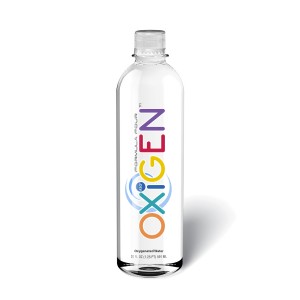Oxygenated bottled water offers drinkable oxygen?
 An oxygenated bottled water brand known as OXiGEN, purports to enhance humans’ capability to consume oxygen by delivering activated stabilized oxygen (ASO) – a highly stable oxygen molecule that stays in water for two years after bottling.
An oxygenated bottled water brand known as OXiGEN, purports to enhance humans’ capability to consume oxygen by delivering activated stabilized oxygen (ASO) – a highly stable oxygen molecule that stays in water for two years after bottling.
Produced by Formula Four Beverages Inc, the active ingredient in OXiGEN is said to be activated stabilized oxygen, the molecule O4, first developed by an aerospace engineer in 1956 by bonding two O2 molecules together.
The Middle East Newswire quoted the company’s President and CEO, Blair Bentham as saying that the oxygenated bottled water which does not contain any unhealthy additives, is “shaking up the beverage industry globally.”
“We know consumers are gravitating towards healthier and more natural products. With OXiGEN water we’re giving them a completely functional beverage experience that combines clean hydration and an energy source derived from life’s most essential element, oxygen,” he said.
Formula four also says a double blind, placebo-controlled study conducted over six months at Indiana State University showed that the ASO in OXiGEN water goes to work almost immediately, and the water showed a statistically significant ability to clear lactic acid faster.
While oxygenated water has gained endorsement by some professional athletes in the US in the past, some experts have discounted the benefits of it which they say have not been conclusively verified by studies.
A nutrition professor at the University of Utah, Wayne Askew was in 2014, reported by The Vancouver Sun to have said that in one such study, nothing physiologically significant was found to show that water dissolved oxygen in water increases the amount of oxygen in the blood: while the ASO in OXiGEN could be of some benefit, there is no proof that oxygen can be absorbed from water by humans.
Oxygenated water has also been associated with the risk of production of cell-damaging free radicals in the body.
A research published in the European Journal of Medical Research in 2002, found that oxygenated water results in a moderate but time-limited production of free radicals which is mediated by long-term consumption of oxygenated water.
By Emmanuel Odonkor
